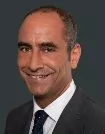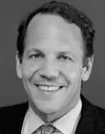The United States Court of Appeals for the Sixth Circuit recently issued an important decision regarding the requirements for stating a claim under Section 11 of the Securities Act of 1933 based on an allegedly misleading opinion in a registration statement. In Indiana State District Council of Laborers & HOD Carriers Pension & Welfare Fund v. Omnicare, Inc., 2013 US App. LEXIS 10385 (6th Cir. May 23, 2013), the Sixth Circuit ruled that, when a plaintiff asserts a Section 11 claim premised on an allegedly false statement of opinion or belief, the plaintiff must plead (and eventually prove) that the statement was objectively false, but does not have to plead or prove that the defendant knew the statement was untrue at the time it was made. This ruling conflicts with decisions by the Second and Ninth Circuits, which have held that an opinion can give rise to a claim under Section 11 only if the complaint alleges that the statement was both objectively false and disbelieved by the defendant at the time it was made. See Fait v. Regions Fin. Corp., 655 F.3d 105, 110 (2d Cir. 2011); Rubke v. Capitol Bancorp Ltd., 551 F.3d 1156, 1162 (9th Cir. 2009).
Background
Omnicare, Inc. ("Omnicare") is the largest provider of pharmaceutical care services for the elderly in the United States and Canada. On December 15, 2005, Omnicare conducted a secondary public offering of more than 12 million shares of common stock. A month later, in January 2006, several government agencies raided Omnicare facilities, and by late 2006, Omnicare and one of its subsidiaries settled allegations of illegal activity, including alleged kickback arrangements with pharmaceutical manufacturers and the submission of false claims to Medicare and Medicaid.
The plaintiffs, who purportedly purchased shares of Omnicare stock in the secondary public offering, alleged that Omnicare and certain of its officers and directors violated Section 11 by making material misstatements or omitting material facts in the registration statement for the secondary public offering. In particular, the plaintiffs alleged that the registration statement was materially misleading because it stated that Omnicare's contracts with drug companies were "legally and economically valid arrangements that bring value to the healthcare system and patients that [it] serve[s]." The plaintiffs claimed that the defendants' statement about "legal compliance" was materially misleading in light of its allegedly illegal activities.
The defendants moved to dismiss the plaintiffs' complaint, and the US District Court for the Eastern District of Kentucky granted the motion because, among other things, the plaintiffs failed to allege facts from which to infer that the defendants knew that their statements about legal compliance were false at the time they were made.
The Sixth Circuit's Decision
On appeal, the Sixth Circuit reversed the district court's decision and ruled that it was "inappropriate for the district court to require [the plaintiffs] to plead knowledge in connection with their § 11 claim" regarding the defendants' statement about legal compliance. Omnicare, 2013 US App. LEXIS 10385, at *11. The Court explained that, because Section 11 "provides for strict liability when a registration statement 'contain[s] an untrue statement of a material fact,' . . . once a false statement has been made, a defendant's knowledge is not relevant" to the claim. Id. at *17 (internal citations omitted) (quoting 15 U.S.C. 77k(a)).
In reaching this decision, the Sixth Circuit distinguished the Supreme Court's opinion in Virginia Bankshares, Inc. v. Sandberg, 501 US 1083 (1991). In Virginia Bankshares, minority shareholders alleged that, in soliciting proxies for a proposed merger, certain bank directors violated Section 14(a) of the Securities Exchange Act of 1934, by falsely stating that the minority shareholders were being offered "high" value and a "fair" price for their stock. Id. at 1088. One of the issues before the Court was whether statements of reasons, opinions, or beliefs are statements of "'material fact[s]' so as to fall within the strictures of" Section 14(a). See id. at 1091. The Court ruled that, while statements of reasons, opinions, and belief are not facts in and of themselves, there is a factual component to the statements – namely, whether the speaker actually held the opinions or beliefs or acted for the reasons stated. See id. at 1092. Thus, the Court held that, in order to establish that reasons, opinions and beliefs are materially misleading facts under Section 14(a), the plaintiff must prove that the statements were false and that the speaker did not believe the opinions or beliefs when expressed. See id. at 1096.
After reviewing the Supreme Court's decision, the Sixth Circuit stated that it "see[s] nothing in Virginia Bankshares that alters the outcome in the instant case." The Sixth Circuit explained that the Supreme Court "effectively treated" Section 14(a) "as a statute that required scienter," and therefore, Virginia Bankshares "has very limited application to § 11; a provision which the Court has already held to create strict liability." Id. at *21.
The Sixth Circuit also explicitly "decline[d] to follow" the Second Circuit's decision in Fait and the Ninth Circuit's decision in Rubke because, according to the Sixth Circuit, those courts "have read more into Virginia Bankshares than the language of the opinion allows and have stretched to extend this § 14(a) case into a § 11 context." Id. at *20.
Significance of Omnicare
Omnicare makes it easier for plaintiffs who file cases in the district courts of the Sixth Circuit to plead and later prove a violation of Section 11 based on an allegedly false opinion in a registration statement. This decision has particular importance for experts, such as accounting firms, whose opinions are often included in registration statements, as well as issuers, senior executives, directors, and underwriters who are often named in Section 11 securities class actions. In addition, because the Omnicare decision is in conflict with decisions from the Second and Ninth Circuits, the Supreme Court may take an interest in resolving the conflict at some point in the future.
The content of this article is intended to provide a general guide to the subject matter. Specialist advice should be sought about your specific circumstances.





